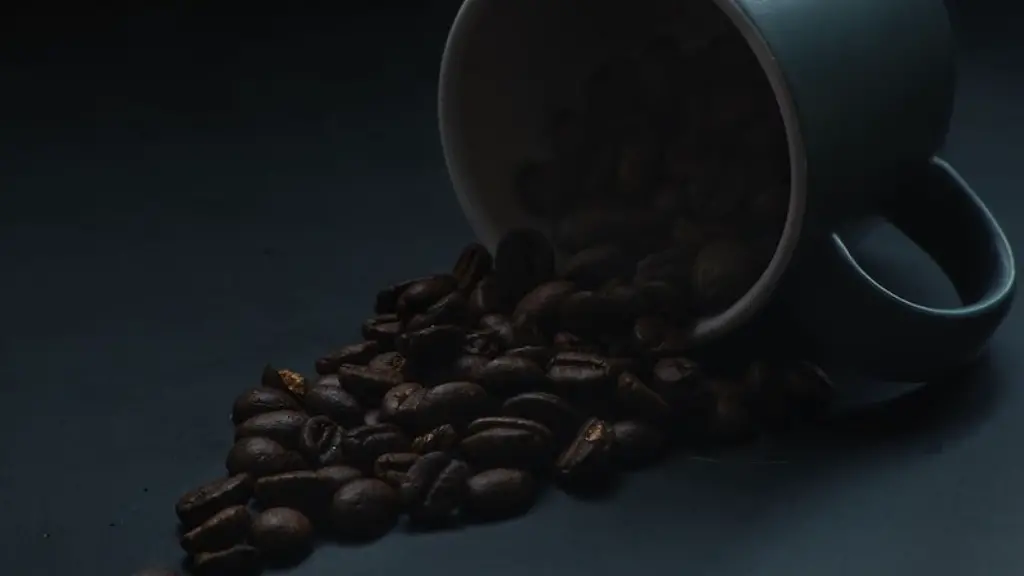Wisdom teeth are one of the final teeth that develop in the mouth, usually between the ages of 18 and 22. It is widely accepted that most individuals only have room for 28 teeth after the wisdom teeth set in, and as a result, wisdom teeth can be risk factors for problems such as impaction, crowding, cavities, and gum disease. When these issues arise, it is often recommended that the individual have the wisdom teeth removed.
This procedure involves general anesthesia, to avoid discomfort and pain, and requires a certain period of recovery and recovery care. One of the crucial parts of the recovery care process is managing overall nutrition, but also attending to the dietary restrictions during recovery. Many of these restrictions include avoiding hard or crunchy foods while the mouth is healing, but also avoiding hot and cold foods, as well as acidic foods.
This brings up the question: Can you drink coffee after getting wisdom teeth out? Although immediate consumption of coffee is cautioned against, there are several factors to consider before consuming coffee or other hot beverages after recovering from a wisdom teeth extraction.
It is possible to drink coffee after wisdom teeth extraction, but consuming hot beverages should be avoided while the gums are still sensitive and healing. Coffee is generally considered safe to consume normally, however the individual should pay attention to several potential symptoms that could occur while drinking it. These include increased swelling and localized pain, as well as prolonged bleeding.
If the individual notices any of these symptoms, they should immediately stop drinking coffee and opt for other beverages that are easier to digest, such as herbal teas and smoothies, that are not too cold or too hot.
Pain Medication
When it comes to pain medication taken after wisdom teeth extraction, it is important to note that caffeine can interfere with the action of some of these drugs. This is especially true for painkillers that include ingredients like ibuprofen, aspirin, and acetaminophen, as caffeine can reduce their effectiveness.
For this reason, it is recommended to wait until the pain medication has been taken, and keep in mind that if the individual takes more than two doses of ibuprofen (600 mg) per day, they should not drink more than two cups of coffee.
It is also necessary to take a break of at least 4 to 5 hours between doses of these medications and coffee, in order to avoid damaging the stomach lining, as well as duodenal and gastric ulcers.
Watch out for Caffeine Overload
Drinking coffee after getting wisdom teeth out should be consumed in moderation and always combined with a good dental hygiene routine. This includes flossing at least twice a day to fulfill one of the strongest recommendations after the removal procedure, which is to avoid food particles and any kind of debris from being left between the teeth.
To avoid caffeine overload, it is important to limit coffee to one or two cups a day, and opt for decaffeinated and low-caffeine coffee alternatives when possible. This is especially crucial later on in recovery.
Overall, drinking coffee after wisdom teeth extraction is not recommended due to the potential risks and problems that can arise, such as increased bleeding, inflammation, and complications related to pain medication.
Mouth Rinse
Using a mouth rinse is recommended to reduce swelling and pain, as well as decrease the risk of infection. For this, specialist mouthwashes for wound healing can be bought in pharmacies or some grocery stores. However, the use of essential oils and other proactive methods should be avoided.
Mouth rinses and other recommended products should be used no more than once a day, except in special cases and with permission from the dentist.
Gauging the Effects of Caffeine Intake
It is important that an individual drinks coffee in moderation and monitor how they feel after consuming it. If they experience pain, swelling, or other forms of discomfort that are out of the ordinary, they should be aware, as it may indicate delayed recovery or potential problems.
Individuals should speak to their dentist if they encounter any issues like this, as they can offer personalized advice on how to manage and avoid any potential risks.
Caffeine Impact on the Healing Process
Caffeine consumption can have a direct impact on the healing process, as consuming it for a few days after undergoing the procedure can cause more pain and discomfort than usual, as well as interfere with the medications taken.
Despite the potential risks that exist, it is possible to drink coffee after wisdom teeth extraction, but it should be done in moderation and combined with a good dental hygiene routine and the other recommendations given.
Special Considerations with Certain Food Types
When it comes to the other types of food that can be taken after wisdom teeth extraction, it is important to note that there are several to avoid or consume with special care, depending on the individual’s situation.
Soft and semi-solid foods, as well as juiced vegetables and fruits, are allowed, but anything hard, crunchy, and chewy should be avoided. In the same way, acidic foods and drinks, as well as alcoholic beverages, should be avoided at all costs, as they can interfere with the healing process and cause discomfort or pain.
Risks Associated with Delayed Recovery
Swelling, bleeding, and pain are normal after a wisdom teeth extraction, but if any of them last for more than four days, the individual should speak to their dentist to ensure that everything is okay. In the same way, if increased swelling is noticed, it is necessary to talk to the professional to assess the effectiveness of the procedure.
Delayed recovery may cause other problems such as nerve damage, infection, and the formation of cysts.
Maintaining Oral Hygiene After the Procedure
It is also important to practice good oral hygiene after the procedure, as it helps maintain a healthy gums and mouth, reduces the chances of infection, and increases the chances of faster healing.
This includes brushing the teeth carefully and gently, avoiding any excessively vigorous strokes. The same care should be taken when flossing, as it helps to remove any food particles, and avoids overexposure to sugary and starchy products.





